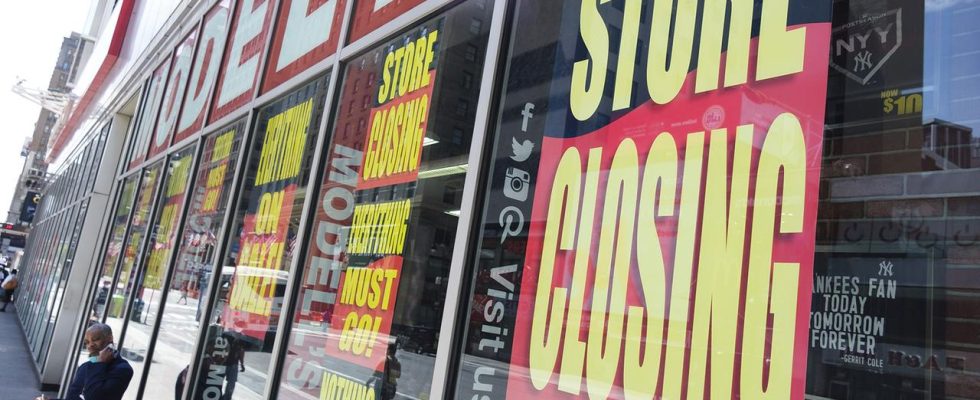Economic growth in the USA slowed down significantly at the beginning of the year. The United States has not slipped into a recession for the time being – mainly thanks to high consumer spending.
The US economy grew 1.1 percent in the first quarter. This was announced by the US Department of Commerce in Washington. The economy thus fell well short of expectations. Economists had expected gross domestic product (GDP) to grow by two percent. In the fourth quarter of last year, the world’s largest economy grew by 2.6 percent.
The world’s largest economy avoided sliding into a recession in the first quarter. But the figures show how the interest rate hikes by the central banks to combat inflation are affecting the real economy: “Measured against the difficult environment, the US economy was still doing reasonably well at the beginning of 2023,” comments Christoph Balz from Commerzbank on the figures.
However, Balz continues to expect that the US economy will shrink slightly in the second half of the year. Because the full burden of the interest rate hikes should only then be felt. In addition, the growth in the first quarter is mainly based on January – in February and March the data were already weaker.
Is the US sliding into a recession?
Balz’s assessment is shared by other economists: according to Bastian Hepperle from Hauck Aufhäuser Lampe Privatbank, the restrictive monetary policy and stricter lending conditions are likely to have an increasingly disadvantageous effect. “The signals are still pointing to a recession, albeit in a milder form.”
“US growth is clearly disappointing, but can remain in positive territory,” summarizes Ralf Schweden from Helaba. In view of the next decision by the US Federal Reserve Bank on further interest rate hikes next Wednesday, it remains to be seen whether there will be a pause after the announced interest rate hike next week.
Interest costs burden companies and households
Private consumption continues to be the mainstay of the economy, explained Christine Volk from KfW. “The significant rise in interest rates will also make itself felt in this area over the course of the year.” Data from March would show that households are now reluctant to buy new cars, for example. The reason for this is the increased interest rates and the associated rising borrowing costs. The effects of the interest rate hikes on the housing market can be seen even more clearly.
In addition, the investments of companies would be increasingly difficult due to the increased financing costs. They had increased by 0.7 percent in the first quarter, private consumer spending by 3.7 percent. On the other hand, the labor market continues to develop robustly: the initial applications for unemployment benefits fell significantly in the past week.

